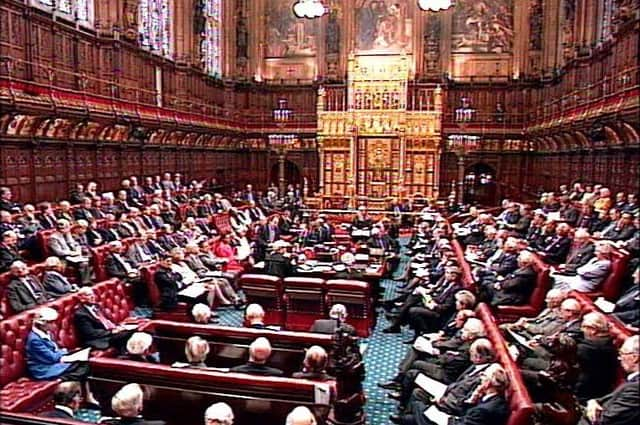Esmond Birnie: The protocol is not as claimed boosting growth in Northern Ireland


They said that the protocol has been boosting growth in the Northern Ireland economy.
In fact, the actual growth of the Northern Ireland economy in the period since January 1 2021 when the protocol came into force has lagged behind the United Kingdom average.
Advertisement
Hide AdAdvertisement
Hide AdNote that the first quarter of 2020 was the last period before the pandemic had any substantial impact on the economy.
Similarly, the last quarter of 2020 was just before the implementation of Brexit on January 1 2021, when Great Britain left the single market but Northern Ireland remained, given the protocol.
It is true that compared with pre-pandemic output levels, Northern Ireland has registered significantly more growth than the UK average.
But much of the explanation for this pre-dates the application of the protocol.
Advertisement
Hide AdAdvertisement
Hide AdThe Northern Irish economy suffered much less from Covid-19 than the rest of the UK (possibly because it has a larger public sector).
During the five quarters since the fourth quarter of 2020, with the protocol in operation, Northern Ireland’s growth — at 6.2% — fell short of the United Kingdom average (7.5%).
What we can see is that the protocol is affecting different sectors or industries in various ways.
It may hurt sectors that are dependent on inputs coming to Northern Ireland from the rest of the UK but help those that buy from or sell into the Republic of Ireland or the rest of the European Union.
Advertisement
Hide AdAdvertisement
Hide AdGiven this, it is worth looking at the pattern of growth within manufacturing during the period of the protocol.
There is a lot of volatility in the data and other factors that may be influencing these figures, for example the rapid decline in chemical and pharmaceuticals may reflect a reduction in Covid-19 testing.
That said, the contrast between the recent performance of food, drink and tobacco (predominantly food processing), which has most likely benefited from the trade diversion effects of the Northern Ireland Protocol, compared with electrical engineering (which is heavily reliant on inputs from Great Britain) is striking.
It is also worth noting that if a structural shift is happening, it is one from sectors that generally have high productivity levels — for example, branches of engineering — to ones that are generally lower value added per person, such as food products.
Advertisement
Hide AdAdvertisement
Hide AdNote especially the marked decline in output in transport equipment (both aerospace and road vehicles).
Last week’s House of Lords’ Sub-Committee Report indicated (based on the ADS — Aerospace, Defence and Security — trade association figures) very substantial protocol-related increases in the costs facing aerospace manufacturing in Northern Ireland:
• 2-3% for materials
• l 7-15% for logistics
and • 10-15% for admin
So, earlier estimates that the protocol may have added 6-8% on average to the costs of bringing in goods from Great Britain to Northern Ireland are receiving wider support.
The National Institute article correctly highlighted the need to raise productivity in the Northern Ireland economy.
The protocol, alas, may be pushing us in the reverse direction towards a lower productivity economy.
• Dr Esmond Birnie is senior economist, Ulster University Business School